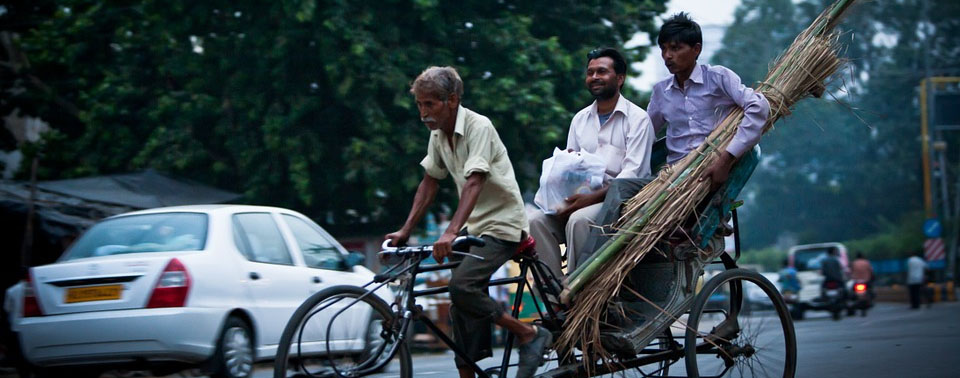“Promote opportunities for all women and men to obtain decent and productive work in conditions of freedom, equity, security and dignity” declares the recently adopted document-Decent Work Country Programme (DWCP) for India (2007-2012). The International Labour Organisation`s (ILO`s) agenda of decent work for all has evolved into a very unique country programme, with India to not only ensure decent work environment for the working class but also ending child labour in the country. The DWCP for India has been prepared in cooperation with the Ministry of Labour and Employment, the trade unions-All India Trade Union Congress, Bharatiya Mazdoor Sangh, Centre of Indian Trade Unions, Hind Mazdoor Sabha and Indian National Trade Union Congress-and the Council of Indian Employers. This has also been incorporated in the 11th Five Year Plan (2007-2011) of the country. The vision of faster and inclusive economic growth of the country resonates with the DWCP objectives of social equity and is reflected in the macro-level policy of the country. The DWCP has been linked with the United Nations Millennium Goal 1, that is, eradication of extreme poverty and hunger (to halve the number of people living in extreme poverty by 2015). This global poverty reduction goal has been linked with five regional priorities of youth employment, local development for Decent Work, productivity, competitiveness and jobs, management of labour migration, and labour market governance. Because the DWCP has built its aim around the needs, priorities and conditions in individual countries, it has the potential to lead to more equitable work conditions and pay structure, healthy work environment with fair play ensured from all the involved parties, empowerment of the weak and poor, and eradication of child labour.
In 2007, an agreement was reached to align DWCP-India with the 11th Five Year Plan and the United Nations Development Assistance Framework (UNDAF)-India (2008-2012).
DWCP for India lays special emphasis on the following three priorities and four medium-term outcomes requiring actions at macro, sectoral and micro levels spanning research, advocacy and demonstration technical cooperation programmes. The priorities include (i) enhancing productive work for women and men, particularly for youth and vulnerable groups; (ii) extending social protection progressively and (iii) eliminating unacceptable forms of work progressively.
The outcomes include i) decent and productive employment integrated into socio-economic policies through policy/action and research, ii) comprehensive approaches developed to address decent and productive work in selected sectors and states, with emphasis on women workers iii) formulation and progressive extension of social protection policies/programmes and 4) strengthened policy framework for the elimination of unacceptable forms of work.
Analytical studies are being carried out to address employment-related challenges in the country whereas the ILO is directly providing technical support for the promotion of employment in the formal sector as well as improving work conditions in the informal sector. ILO is also helping in tripartite deliberations for informed and effective participation in the policy making process. Providing training to the workforce, with special focus on the informal sector, is also in the ambit of DWCP.
India, as a founding member of the ILO, has ratified ILO Convention No. 142 (Human Resource Development) and recommendation 195 (HRD: Education, Training and Lifelong Learning) to show its commitment to providing training to the workforce in both formal and informal sectors and, thus, maintaining international labour standards.
The ILO is also looking at getting DWCP integrated into the National Rural Employment Guarantee Programme (NREGP) so as to promote sustainable livelihoods and capacity building for partners at the grass-roots level. The ILO aims at studying and implementing micro-insurance schemes so that these observations can be applied and used elsewhere. The DWCP has been proactive in the development of Local Economic Development (LED) tools, which had specifically been adapted to local conditions. Post-tsunami alternative livelihoods programmes and similar programmes in the post-Kosi flood Bihar have the potential of being further developed and spread to various localities through other Government of India (GOI) schemes. The DCWP also aims at providing social protection to workers of all strata and all levels. These include occupational safety and healthy work conditions (workplace safety, and occupational accidents and diseases, and linking these with social security schemes.)
Top on the UNDAF 2008-2012 agenda is “promoting social, economic and political empowerment of the most disadvantaged, especially women and girls.” Thus, the alignment of DWCP with UNDAF provides for streamlining ILO`s attempts to act on various issues such as alleviation of poverty, and its careful study of and multi-tasking activities on HIV/AIDS at the workplace. A common area of concern being the environment, the Ministry of Labour and Employment has set up a multi-stakeholder taskforce on Climate Change and Green Jobs, with ILO launching a green job initiative.
The eradication of child labour has been on the top of the list of both GOI and ILO; in DWCP too, it has been given high priority. The ILO is, therefore, committed to provide to NCLP (National Child Labour Programme) full technical cooperation for the elimination of child labour. Such technical cooperation plans will also serve as pilot models as well as research laboratories for the elimination of child labour.
The DWCP India aims at preventing family over-indebtedness. A very interesting aspect of the DWCP programme is to experiment with new tools and techniques, and to learn from these experiments. The DWCP aims at providing training to unskilled labour and recognising the skills acquired informally (mostly through family apprenticeship).

